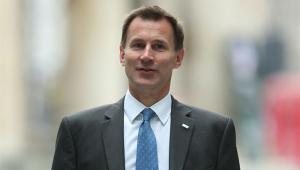Waiting lists for treatment are now at a “record high”, with 503,900 patients waiting more than 18 weeks for non-urgent treatment, according to monthly figures for July 2018 from NHS England.
This number jumped from 390,659 in July 2017.
Derek Alderson, president of the Royal College of Surgeons, said: “Over the summer months we would usually see a fall in the number of patients waiting for treatment.
“However, with 503,900 patients now waiting, lists are now at record levels.”
Analysis of NHS England data by the RCS found that despite the rise in patients on waiting lists, hospital admissions have dropped by more than 84,000 this year.
A contributing factor to the growing waiting list, Alderson said, was NHS England’s advice to hospitals to cancel all elective operations in January.
Alderson added: “There has been no coordinated plan to catch-up the planned surgery backlog that was built-up in the winter months, and coupled with an under-resourced social care system, the NHS is now headed towards winter on a precariously shaky footing.”
Niall Dickson, chief executive of the NHS Confederation, which represents organisations across the healthcare sector, said: “This may look like an NHS that is failing - one target after another not being met.
“In reality it is anything but - this is a service that is stretching every sinew to meet rising demand, but it simply does not have the means to do so.”
The data, released on Thursday last week, also showed a deterioration in the percentage of cancer patients being seen within the target window of 62 days from the initial appointment, the target for which is 85%.
The percentage of people being seen within 62 days fell from 81.4% in July 2017 to 78.2% this July- the lowest percentage since records began in 2009.
Miriam Deakin, deputy director of policy and strategy at NHS Providers, said the cancer waiting times were “worrying”.
An NHS England spokesman said: “Waits for operations are now dramatically shorter and patients are being seen far quicker – 30 years ago 200,000 people were waiting over a year, now it’s fewer than 5,000, and over the coming year the NHS is funding more waiting-list operations, including for hip and knee conditions, and we are encouraging hospitals to use this funding to ramp up their elective operating now.”
Last week, NHS Improvement figures revealed that the NHS provider sector fell 10% further into deficit compared to last year.











